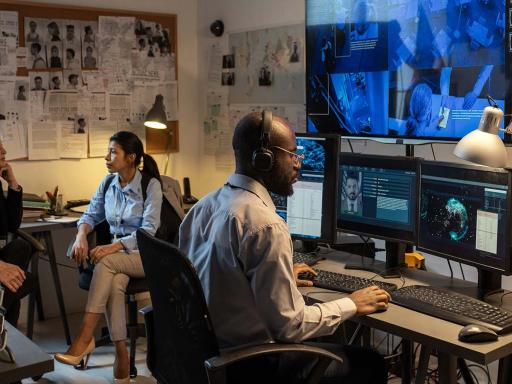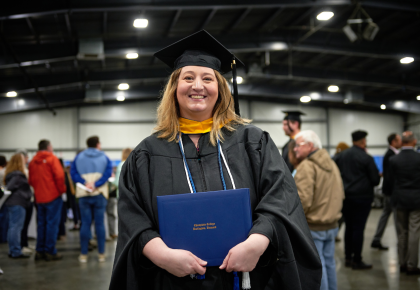Take CRIM-100
Get Started in Criminal Justice
In this online Bachelor's degree program in Criminal Justice, students will learn about the distinct and overlapping roles of law enforcement, the court system, and corrections in the U.S. criminal justice system. The program covers a variety of relevant topics, including terrorism, both global and domestic, as well as victimology, juvenile justice and restorative justice. Students of the BA in Criminal Justice also have the opportunity to take advanced courses from the BA in Applied Psychology and BA in Sociology programs, gaining a more comprehensive understanding of how the fields are interconnected. Graduates of the BA in Criminal Justice will be ready to make a difference in their communities.
Finish your program faster with credit for prior learning and experience.
Differentiate your degree and get your resumé noticed with an added certificate. Speak with your advisor for information.
Make a Difference in Your Community
This BA in Criminal Justice degree program introduces students to the criminal justice system, corrections, and the legal industry. This degree creates pathways for careers in law, corrections, public safety, human service, and advocacy. Graduates will be able to apply classroom knowledge to real world scenarios, allowing them to drive positive change in their communities and society.
Program Curriculum
Graduates of the program are required to complete the following courses.
Criminal Justice Core Courses (21 credits)
Behavioral and Social Science Courses (15 credits)
Applied Advanced Electives (12 credits)
General Education Courses (42 credits)
General Electives (30 credits)
This course provides students with a comprehensive overview of the American criminal justice system as comprising three essential components: law enforcement, the court system and corrections. Students will recognize that the field of criminal justice is interdisciplinary and they will outline and discuss the historical foundation of the criminal justice system. They will also explore social and ethical dimensions as they review real-world case studies.
This course introduces students to the fundamentals of substantive criminal law. With this foundation for understanding the legal system students will identify the essential elements of crimes, including the criminal act, criminal state of mind, and jurisdiction. They will examine the rationale underlying criminal law, factors affecting criminal responsibility, and legal defenses. By analyzing real-world scenarios, students will develop skills to distinguish lawful from unlawful actions and prepare for advanced studies or careers in criminal justice.
This course focuses on the rules and procedures governing how the American criminal justice system must process individuals suspected, accused, and convicted of law violations.
In this course students will demonstrate a comprehensive understanding of the corrections system and examine its role in the broader criminal justice system. They will articulate its historical development, contemporary practices and the impact on individuals and communities. With particular attention to diversity and social justice, students will analyze correctional policies and practices, including rehabilitation efforts.
Prerequisites
In this course, students discuss the concept of delinquency as they examine the US juvenile justice system, its structure, processes, and objectives. Students will critically analyze the social, community, and environmental factors that contribute to juvenile delinquency and explore the diverse approaches employed to rehabilitate and reintegrate young offenders into society.
Prerequisites
Take CRIM-100
Criminologists study the causes of crime, as well as the consequences and prevention of criminal behavior. In this course students will compare and contrast theories of crime causation from sociological, psychological, and biological perspectives. They will interpret data on who commits crime, under what conditions. Additionally, they will assess the impacts of crime on communities and society with an emphasis on the relationship between social inequality and crime.
Prerequisites
Take CRIM-100
This course offers an exploration of victimology as a subfield of criminology. Students will deconstruct victimization from a historic and prevailing-theories standpoint of victimology. Students will evaluate a trauma-informed approach to victim services and argue ways in which victims' recall and engagement is shaped by their individual experience. Students will also critically evaluate society's responses to victims of crime including media coverage of victimization, victims' rights, and advocacy.
Prerequisites
Take CRIM-100
Students will learn about how social science research is conducted, including the research methods (quantitative and qualitative) typically used in the social sciences. Students will assess the alignment of various research methods and the research goal and ultimately practice planning, conducting, analyzing and interpreting research. Additionally, students will critically analyze existing research through the lens of ethics and social justice.
Students will learn how to create conditions for successful conflict engagement, a necessary skill for any professional. The course focuses on the foundational capacities to remain calm and connected with oneself and others. In this state students can access helpful ideas and responses and be their best selves regardless of environment. Improving facility for conflict creates stronger relationships and reduces fear. By the end of the course, students will understand that disagreement and difference can become a source of personal and interpersonal growth.
This course explores the intersections among race, class, gender and categories of difference. Students will explore theories of difference in their relation to topics such as education, work, poverty, and the criminal justice system. They will recognize how those intersections and structural inequalities show up in their chosen career fields and their civic and personal lives. Students will critically analyze inequality as a system rather than as an aggregation of individual identities.
Prerequisites
PSYC-100 or SOCI-110 or CRIM 100
Ethics refers to accepted standards of right and wrong that prescribe what humans ought to do in various contexts, typically in relation to rights, obligations/duties, benefits to society, fairness, consequences, and virtues. In this course, students will explore both theoretical and practical dimensions of ethics in order to 1) define ethics and identify ethical positions and principles, 2) critically reflect on how ethics impacts individual and collective responsibility, decision-making, and action, and 3) apply ethics to the personal, civic, and professional contexts.
Prerequisites
ENGL-110
Students in Social Sciences programs will synthesize their program-specific knowledge and apply that perspective to a real-world problem or opportunity within the scope of their academic program. Students will create an experiential project of their own design that responds to the need of either a specific organization or the field of professional study. The project may be designed based on indirect or direct evidence, supporting a project idea that addresses a real-world problem or opportunity.
Prerequisites
12 credits or fewer left to complete the degree
Take both of the following courses, plus any two 200+ level SOCI or PSYC courses.
This course provides students with an in-depth examination of the history, development, and impact of international and domestic terrorism. The course will draw from a variety of theoretical frameworks from which students will explore the different types of terrorism strategies, tactics, and their historic origins. Students will apply those theories to real-world cases and evaluate counterterrorism strategies and policy effectiveness.
Prerequisites
CRIM-100 and at least 9 additional credits of Criminal Justice and/or Psyc, and/or Sociology.
Restorative justice is a philosophy, framework, and set of practices that augments the criminal justice system's punitive responses to crime. This course provides students with a comprehensive understanding of restorative justice principles and practices. Through a combination of theoretical study, case analyses, and practical exercises, students will evaluate and predict the effectiveness of restorative justice and its potential to transform traditional criminal justice approaches.
Prerequisites
CRIM-100 and at least 9 additional credits of Criminal Justice and/or Psyc, and/or Sociology.
In addition to the following requirements, students must also complete 3 Credits of a General Education Elective (Any ARTS, COMM, CRIT, ECON, ENGL, HIST, MATH, PHIL, PSYC, SCIE, SOCI, MKCM 120, CRIM except CRIM-225)
This course introduces students to the foundational concepts needed to communicate effectively in writing for academic study and professional development. Students will also learn to read critically to evaluate an author's message. Students will be introduced to rhetorical modes and their role in the development of written communication. Students will also learn how to use revision strategies to create written communication that meets its intended purpose for its intended audience
This course builds on students' proficiency in the writing process and rhetorical modes to introduce the use of sources in written communication. Students will practice information literacy as they learn to determine information needs from sources, develop effective search strategies, and incorporate sources in written communication, legally and ethically.
Prerequisites
Complete ENGL-100
Starting with a frame of human communication as a dynamic system of interactions in which people make choices that impact their relationships, other people, and themselves, students will define theory-informed communication concepts and processes, and critically examine how they apply to everyday life across a variety of contexts. Students will reflect on how the theory, concepts and processes apply to their own lives in becoming competent communicators who are knowledgeable, skilled, and versatile.
This course examines the principles of effective small group interaction. Students will analyze group development stages and small group roles. They will identify and evaluate communication skills that enhance small group cohesion and problem-solving. Students will explain how conflict affects group processes and compare face-to-face versus digital collaboration environments. These skills prepare students to participate effectively in group settings across academic, professional, and community contexts.
Students will learn and apply critical inquiry skills to analyze persuasive communication created by others and to develop persuasive communication/arguments of their own to solve problems in professional, civic, social, and personal contexts. Specifically, students will learn to recognize fallacies in logic; apply inductive and deductive reasoning strategies to the interpretation and development of persuasive communication; evaluate the validity of sources; and develop logically sound persuasive communication. Students will explore the roles of self-awareness, empathy, and ethics in the context of critical inquiry and the development of arguments.
Prerequisites
Complete ENGL-110.
This course is an historical overview, and examination of the evolution of digital, film, and print media, and their functions. Students will identify and analyze contemporary problems of the media such as the legal, social, economic and psychological implications of their relationships with society. They also will examine the ways in which marketing and PR professionals utilize the mass media channels to reach their intended target audiences.
This course explores the complex and evolving relationship between human beings and technology. Through a multi-disciplinary approach that draws on fields such as sociology, psychology, philosophy, and history, students will examine the ways in which technology has shaped human culture, identity, and values, as well as how humans have influenced and continue to influence the development, adoption and use of technology.
This course introduces students to basic statistics for data literacy. With a focus on exploring real-world data, students will interpret numerical information and utilize the tools necessary to complete the entire statistical process: designing a study; gathering, organizing, and analyzing sample data; and making inferences about a population. Students will demonstrate data-driven decision-making and effective communication of numerical data.
Introduces students to the biochemistry and physiology of nutrition and exercise. Emphasis will be placed on human body systems such as musculoskeletal, digestive, respiratory and circulatory, and their relationship to nutrition and fitness. Students will also study the biochemistry of energy conversion as it relates to exercise physiology. Laboratory sessions are designed to reinforce, by a hands-on approach, the principles discussed in lecture. Course includes two laboratory hours per week.
Students will develop the ability to apply scientific methods to understand the natural world, to identify scientific aspects of daily life, and to evaluate the quality of scientific information based on its source and the methods used for its generation.
In this course, students will gain an introduction to classical mechanics and learn about motion, force, energy, and momentum. The course covers vectors, scalars, and coordinate systems, as well as kinematics in one and two dimensions, Newton's Laws of Motion, circular motion, and kinetic energy and work. Students also learn about potential energy and energy conservation, collision theory, rotational motion, moment of inertia, torque, rotational dynamics, and angular momentum.
This course will introduce students to major streams of social justice thought, including historical social justice movements, theoretical problems having to do with social equality, personal freedom, marginalization, and stigmatization, and the ways in which civic and professional communities respond to these issues.
With pressure and release, a window opens and closes, recording light on a sensor. The simple action captures the instinct, judgement, and skill of the person behind the lens. This class will begin a study of the art and craft of photography. Students will develop their vision and their understanding of how to achieve it. Solid skills will be learned and many doors will be opened.
A survey of the continuing change experienced in art since the 15th century. Students will examine how an image is achieved as well as the significance of the subject represented. Individual inquiry concerning the nature of art is encouraged.
Students learn to appreciate films through the critical analysis of various elements of mise-en-scene, cinematography, editing and sound. The course introduces the conventions of classical Hollywood cinema, considers the work of one major director (auteur), and surveys selected international and independent films. Students view and discuss films each week.
Students in the course will explore the cultural history of the music genre broadly referred to as rock. Students will explore the social, economic and political contexts that are influenced by and that influenced each style in the United States. By listening, watching, reflecting upon, discussing and writing, students will explore how music takes on meaning, personally, and culturally. Topics and themes include the relationships between and among gospel, country, funk, folk, disco, rap and hip hop; the role of business and technology in those relationships, and political or transgressive elements of rock music.
Specific application of common tools for writing in the working world. Students will be instructed in rhetorical strategies of professional writing including style, report formats, editing, document design, and integration of visual aids. Students will complete a semester-long writing project; oral and written reports associated with the process of problem-solving within the project will be included.
Prerequisites
ENGL-112 or COR-125
Students will learn how to create conditions for successful conflict engagement, a necessary skill for any professional. The course focuses on the foundational capacities to remain calm and connected with oneself and others. In this state students can access helpful ideas and responses and be their best selves regardless of environment. Improving facility for conflict creates stronger relationships and reduces fear. By the end of the course, students will understand that disagreement and difference can become a source of personal and interpersonal growth.
In this course, students will explore and apply writing principles and techniques to effectively interpret and write technical workplace materials. Students will enhance and gain skills to communicate business and technical information by producing instructions, describing processes, applying document design elements, creating and integrating illustrations, researching and writing proposals and formal reports, and presenting content for decision-makers.
In this course, students will explore broad, foundational knowledge in psychology, including its history, major theorists and a survey of psychology subfields such as developmental, cognitive and social psychology. Students will also describe and assess the role of ethics and social responsibility in the study and application of psychological theory and practices.
In this class, students will explore how social relationships, groups, societies and culture develop and change over time. From a sociological theory foundation and employing the sociological imagination, students will examine the impact of social structures, institutions, and systems on individual lives. Students will apply sociological research methods to investigate sociological phenomena in their own lives.
Starting Fall 2026 the following changes will be made to the General Education curriculum:
- New category, Integration: CRIT 100 Mindsets for Modern Learning (3 credits)
- Social Science and Arts & Humanities categories combine, still just 6 credits required.
- General Education Electives: credits increase to 6
Additional Program Details
Graduates of the criminal justice bachelor's online program will demonstrate the following industry-specific skills, knowledge, and competencies:
- Describe the multidisciplinary evolution of the U.S. criminal justice and corrections systems.
- Identify and analyze the systemic complexities of the U.S. criminal justice system, including the relationships between and among law enforcement, court systems and corrections.
- Examine various sociological and psychological theories about criminal behavior, including factors that contribute to criminal activity, and its impact at individual, societal and cultural levels
- Critically examine the ethical and social justice dimensions of challenges facing the criminal justice system, and communicate responses to those challenges.
- Analyze the global manifestations of criminal behavior, including terrorism.
Design your own degree and enhance its value and focus by adding a certificate. Adding a certificate allows you to develop specialized skills, strengthen your résumé, and tailor your education to align with career goals. Choose from the undergraduate or graduate certificates on this page.
Note: To earn a certificate, you must speak with your advisor first. You must be officially enrolled in the certificate program before you complete the required courses in it — coursework completed prior to enrollment cannot be applied later, and certificates may not be added retroactively. Careful planning with an advisor is essential to ensure all policies and timelines are met.
Our admissions team seeks to admit students who:
- Demonstrate a solid academic foundation - a minimum 2.5 GPA is our recommendation, though exceptions may be made on a case-by-case basis for those who demonstrate a potential for academic success in other ways.
- Possess an aptitude for success in an online learning environment.
- Exhibit the ability to make a positive contribution to the Champlain College Online community.
To learn more about submitting transcripts, or requirements for home-schooled students, those educated abroad or returning students visit our Undergraduate Admissions page.
Our transfer credit evaluation team works hard to ensure you get the transfer credits you deserve, from a variety of sources including prior college credits, work experience and training, military training and experience, and more. Our goal is to help you graduate from Champlain College Online as quickly and affordably as possible. Visit our Transfer Credit Options page to learn more.
Champlain College Online's social sciences faculty, led by Department Chair Dr. Janet Morrison, are expert practitioners in the field. Their industry expertise ensures that our curriculum is aligned with the needs of employers, and reflects the skills today’s social science professionals need for success. Classes led by our seasoned experts will give you real-world insight into the field, and create a rich community of career-focused learning.
Tuition & Costs
Online Undergraduate Tuition Fall '25 - Summer '26
Tuition & Costs
Online Undergraduate Tuition Fall '26 - Summer '27
* Alumni is defined, for this tuition rate, as any degree program graduate from Champlain College or Champlain College Online.
** Veteran rate effective Spring 2025, not retroactive
See the undergraduate cost of attendance and fees here
Affordability and Paying For Your Education
We provide a number of options to make your online education affordable, including preferred tuition for alumni, associate degree graduates, community college graduates, and military.
What Can You Do With a Bachelor’s in Criminal Justice?
Employment of probation officers and correctional treatment specialists is projected to grow 3 percent from 2022 to 2032. About 7,400 openings for probation officers and correctional treatment specialists are projected each year, on average, over the decade. Many of those openings are expected to result from the need to replace workers who exit the labor force upon retirement.
Additionally, overall employment of police and detectives is projected to grow 3 percent from 2022 to 2032. About 64,500 openings for police and detectives are projected each year, on average, over the next decade. This growth may come from an increased need to protect public safety.
https://www.bls.gov/ooh/protective-service/police-and-detectives.htm
Jobs for Bachelor’s In Criminal Justice
- Corrections Officer
- Human Services Caseworker
- Probation Officer
- Case Manager
- Bailiff
- Security Guard
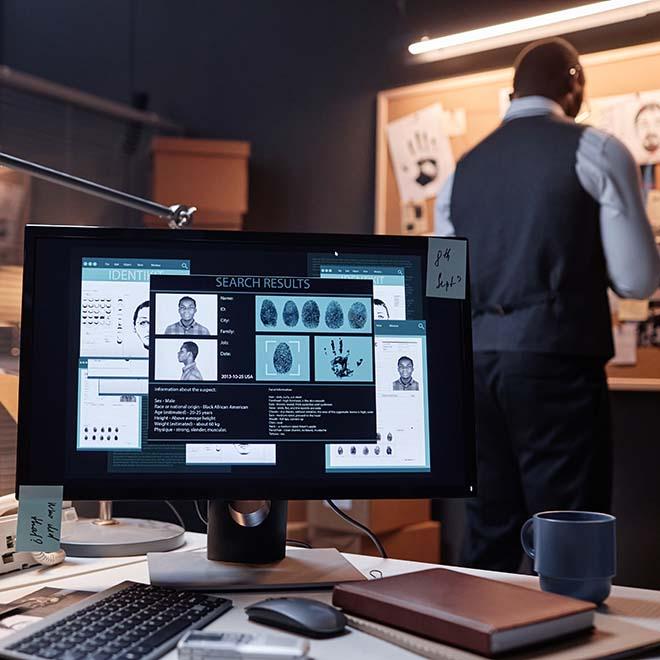
Why Champlain
Affordability
"I was able to transfer in 86 credits towards my bachelor's degree, and then complete the rest of my program at Champlain. In all, it took me four semesters to go from high school graduate to college graduate, and now I've been accepted to the MBA program."

Academic Excellence and Recognition
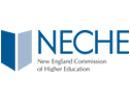
Regionally accredited by the New England Commission of Higher Education
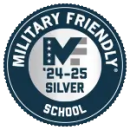
Designated as a Military Friendly School for our commitment to the military community
Ranked among the best by Tech Guide for game design and computer science
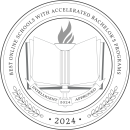
Named the among the best schools with accelerated bachelor's degrees by Intelligent.com
Meet the Program Director
Janet Morrison, Ph.D.
- BS, Integrated Studies
- General Education Curriculum
- Social Science Programs
About
Dr. Morrison has been with Champlain College since 2002, first as faculty; since 2013 as an Academic Advisor, and then as the Associate Director of Academic Advising. While in the Academic Advisor role, she also developed the role of student success coach, and contributed to the development of Champlain College Online's two orientation courses for new students: Introduction to Online Learning; and Introduction to Academic Integrity.
Her dedication to teaching excellence and students' lived experience in their classes began in graduate school at the University of Maine (M.A., Speech Communication), and Southern Illinois University (Ph.D., Speech Communication) and continued through several academic roles prior to continuing her career at Champlain College Online.

FAQs: Criminal Justice Degree Online
While criminology and criminal justice are related fields, their approach to crime differs. Criminology seeks to develop an understanding of the underlying causes and consequences of crime. It explores the sociological, psychological, and economic factors that can lead to criminal behavior. It asks questions like, “What causes an individual to commit a crime?” and “How effective is a given crime prevention method?” On the other hand, criminal justice focuses on addressing crime—the application of the law, operating the legal system, and punishment and rehabilitation. Champlain College Online’s bachelor’s in criminal justice program curriculum covers aspects of criminology, including the behavioral and social sciences of crime. However, the primary focus of the program is on criminal law, procedure, and corrections.
Champlain College Online’s bachelor’s in criminal justice program typically takes an average of three years and four months to complete, assuming you take two courses per term. Our online programs are flexible, allowing you to complete the program at your own pace and in a way that fits your schedule.
Graduates of Champlain College Online’s bachelor’s in criminal justice program will be able to demonstrate many industry-essential skills. You will be able to describe the evolution and complexities of the U.S. criminal justice system, including the role of law enforcement, the court system, and corrections. You will be able to analyze the sociological and psychological theories about criminal behavior and examine the challenges facing the criminal justice system today.
You May Also Be Interested In
Get Your BA in Criminal Justice Program Guide
Learn what you can expect from our online bachelor's in criminal justice program.

Download Program Guide
I acknowledge that, by clicking the "submit" button, I am giving my express written consent to Champlain College and its representatives to contact me about educational opportunities via email, text, or phone, at the phone number above, including my mobile phone, using an automatic dialer, or pre-recorded message. Message and data rates may apply. I understand that my consent is not a requirement for enrollment, and I may withdraw my consent at any time.



